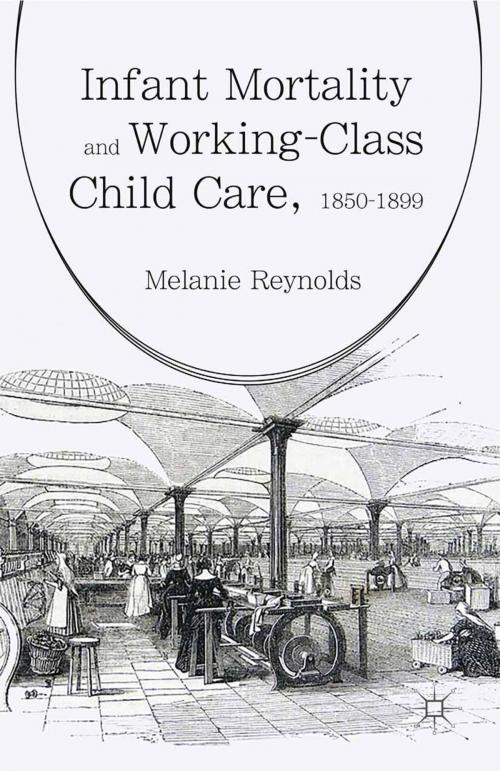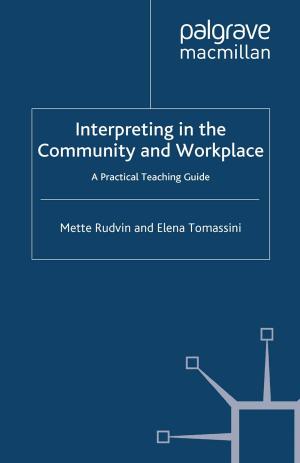| Author: | Melanie Reynolds | ISBN: | 9781137369048 |
| Publisher: | Palgrave Macmillan UK | Publication: | May 21, 2016 |
| Imprint: | Palgrave Macmillan | Language: | English |
| Author: | Melanie Reynolds |
| ISBN: | 9781137369048 |
| Publisher: | Palgrave Macmillan UK |
| Publication: | May 21, 2016 |
| Imprint: | Palgrave Macmillan |
| Language: | English |
Infant Mortality and Working-Class Child Care, 1850-1899 unlocks the hidden history of working-class child care during the second half of the nineteenth century, seeking to challenge those historians who have cast working-class women as feckless and maternally ignorant. By plotting the lives of northern women whilst they grappled with industrial waged work in the factory, in agriculture, in nail making, and in brick and salt works, this book reveals a different picture of northern childcare, one which points to innovative and enterprising child care models. Attention is also given to day-carers as they acted in loco parentis and the workhouse nurse who worked in conjunction with medical paediatrics to provide nineteenth-century welfare to pauper infants. Through the use of a new and wide range of source material, which includes medical and poor law history, Melanie Reynolds allows a fresh and new perspective of working-class child care to arise.
Infant Mortality and Working-Class Child Care, 1850-1899 unlocks the hidden history of working-class child care during the second half of the nineteenth century, seeking to challenge those historians who have cast working-class women as feckless and maternally ignorant. By plotting the lives of northern women whilst they grappled with industrial waged work in the factory, in agriculture, in nail making, and in brick and salt works, this book reveals a different picture of northern childcare, one which points to innovative and enterprising child care models. Attention is also given to day-carers as they acted in loco parentis and the workhouse nurse who worked in conjunction with medical paediatrics to provide nineteenth-century welfare to pauper infants. Through the use of a new and wide range of source material, which includes medical and poor law history, Melanie Reynolds allows a fresh and new perspective of working-class child care to arise.















